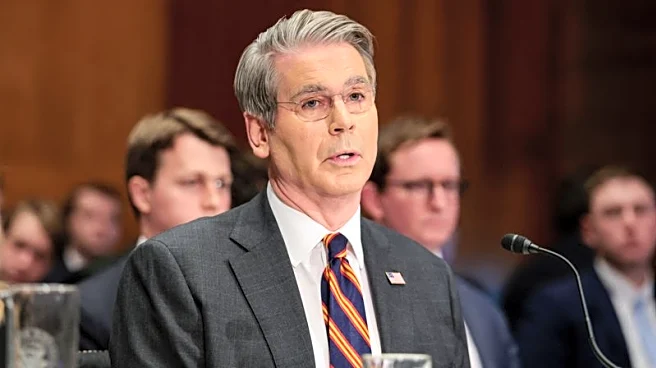What's Happening?
Ford CEO Jim Farley has expressed gratitude to President Trump for recent tariff policies that benefit U.S.-built trucks. Ford reported stronger-than-expected third-quarter results, with record revenue
of $50.5 billion, but adjusted its 2025 outlook due to a fire at a New York aluminum plant and shifting trade rules. The tariff policies have helped Ford offset costs and improve competitiveness for its Super Duty trucks. The company plans to focus on profitable gas and hybrid models as federal emissions goals ease.
Why It's Important?
The tariff policies introduced by President Trump have significant implications for Ford's production strategy and financial performance. By favoring U.S.-built trucks, these policies enhance Ford's competitive position and support domestic manufacturing. The company's focus on gas and hybrid models reflects a strategic shift in response to evolving trade and environmental regulations. The situation underscores the impact of government policies on corporate decision-making and market dynamics.
What's Next?
Ford will continue to monitor trade and emissions regulations, adjusting its production and investment strategies accordingly. The company aims to recover from the supplier incident and leverage policy tailwinds to defend margins. Ford's leadership will focus on optimizing its product mix and exploring opportunities for cost reductions and efficiency improvements.
Beyond the Headlines
The interplay between government policies and corporate strategies raises questions about the balance between economic interests and environmental goals. The situation highlights the complexity of supply chain realignment and the challenges of navigating regulatory changes in the automotive industry.











